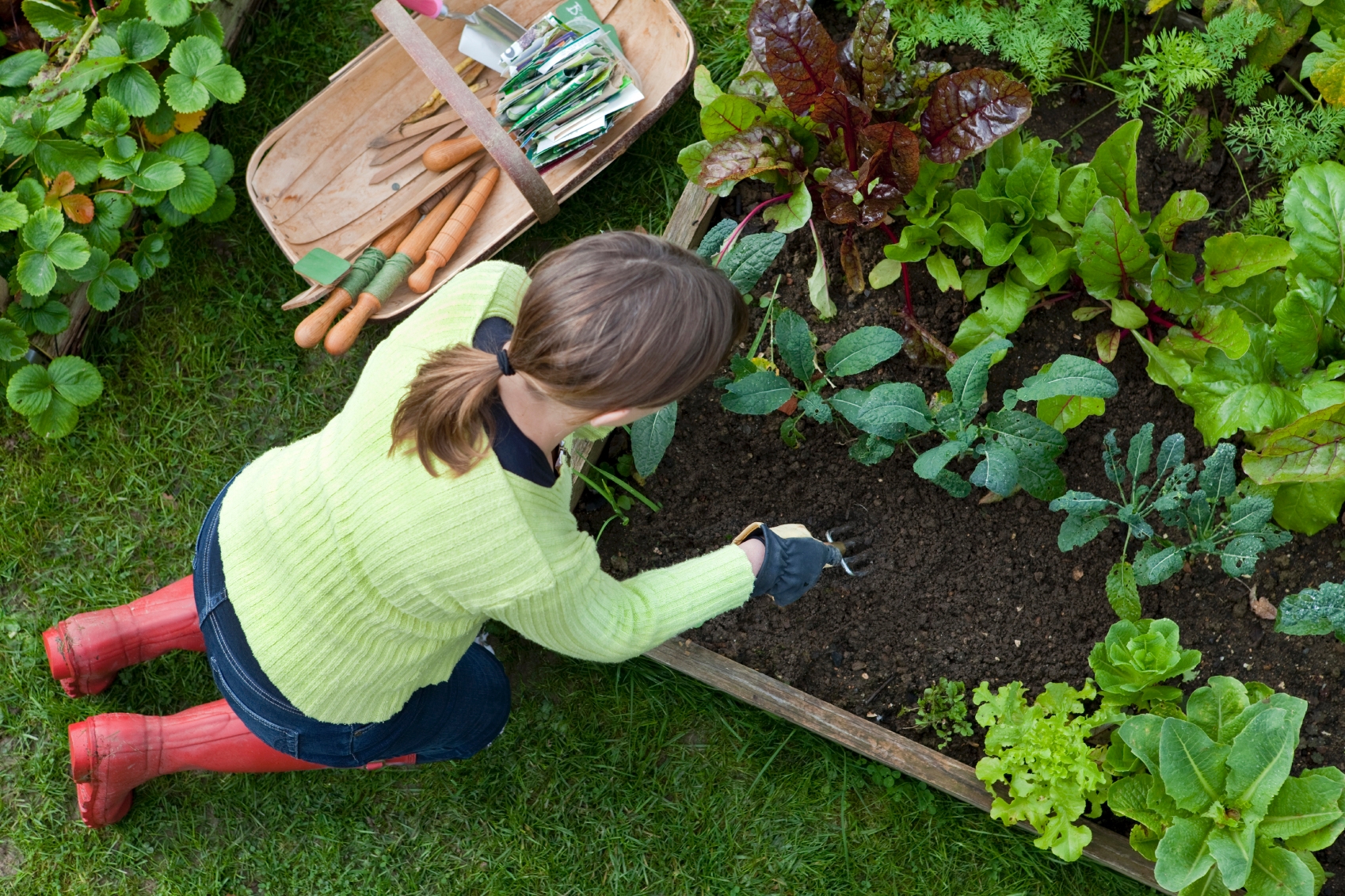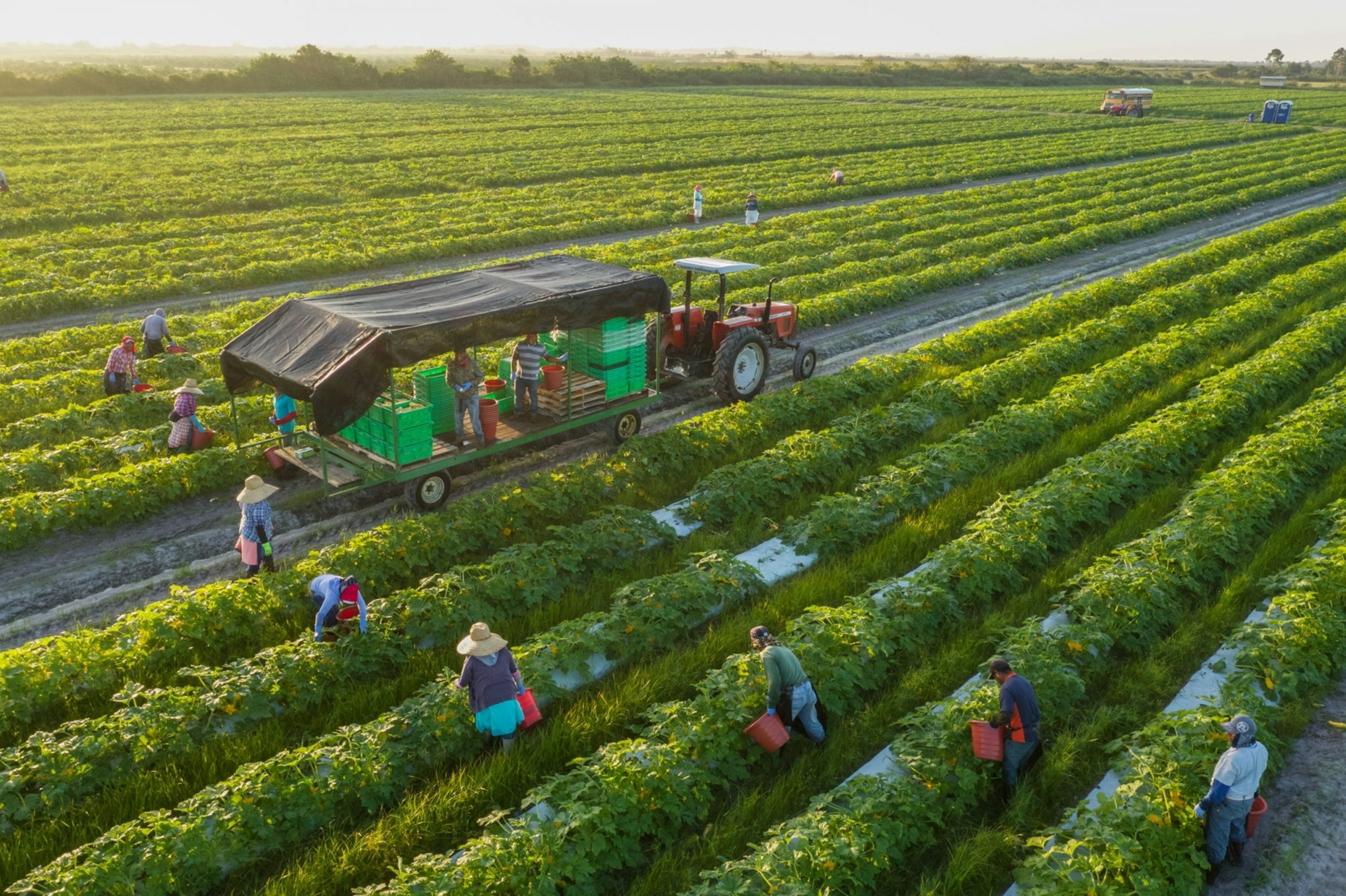To achieve a successful harvest in organic gardening, there are essential dos & don’ts that one must follow. First & foremost, do prioritize soil health by enhancing its fertility through composting & mulching. Do encourage biodiversity by planting a variety of crops & incorporating beneficial insects & companion plants. Do practice proper watering & weeding techniques To ensure optimal growth. Conversely, don’t use synthetic chemicals or pesticides that can harm The environment & compromise The organic integrity of your garden. Don’t neglect To regularly monitor & address pest & disease issues promptly. By adhering To these guidelines, your organic garden will flourish, resulting in a bountiful & satisfying harvest.
The Art of Organic Gardening: Essential Dos and Don’ts for a Successful Harvest. Learn The dos & don’ts of successful organic gardening with The Art of Organic Gardening. Discover essential tips for a bountiful harvest. Get your hands dirty & grow your own pesticide-free produce. Start today & reap The rewards tomorrow
The Art of Organic Gardening: Essential Dos & Don’ts for a Successful Harvest

Organic gardening is a rewarding & sustainable way To grow your own food. Not only does it help reduce our carbon footprint, but it also allows us To have control over what goes into our bodies. However, successful organic gardening requires a certain level of knowledge & skill. In this article, we will explore The essential dos & don’ts for a successful harvest in organic gardening.
Experience with Organic Gardening
As an avid gardener, I have been practicing organic gardening for over a decade. I have personally witnessed The benefits of organic gardening, both in terms of The quality & flavor of The produce, as well as The positive impact it has on The environment. It has been a fulfilling & educational journey, & I am excited To share my knowledge & experience with you.
Essential Dos & Don’ts
Do Plan & Prepare Your Garden
Before starting your organic garden, it is important To plan & prepare The space properly. Choose a location that receives adequate sunlight & has well-drained soil. Clear any weeds or debris & amend The soil with organic matter. This will create a healthy foundation for your plants To thrive.
One of The essential dos of organic gardening is To start with a well-designed garden layout. Consider companion planting, crop rotation, & succession planting To maximize space & yield. This will help prevent pest & disease issues & ensure a diverse & abundant harvest.
Do not neglect The importance of proper spacing between plants. Overcrowding can lead To competition for nutrients & increased susceptibility To pests & diseases. Give each plant enough room To grow & spread out.
Do Use Organic Soil Amendments
Organic gardening relies on natural & sustainable practices. Using organic soil amendments, such as compost, manure, & organic fertilizers, is essential for providing nutrients To your plants. These amendments help improve soil structure, fertility, & water-holding capacity.
Avoid using synthetic chemical fertilizers & pesticides, as they can harm beneficial organisms in The soil & have negative effects on The environment. Instead, opt for natural pest control methods like companion planting, crop rotation, & attracting beneficial insects.
It is also important To regularly test The pH level of your soil & adjust it if necessary. Most plants prefer a slightly acidic To neutral pH, & maintaining The right pH range will ensure optimal nutrient uptake & healthy plant growth.
Do Practice Water Conservation
Water is a precious resource, & in organic gardening, it is crucial To use it efficiently. Mulching around your plants helps retain moisture in The soil, reduces weed growth, & prevents erosion. Use organic mulches like straw, leaves, or wood chips.
Installing a drip irrigation system or using soaker hoses can also help conserve water by delivering it directly To The roots of The plants. Avoid overhead watering, as it can lead To water wastage & increase The risk of fungal diseases.
Collecting rainwater in barrels or using a greywater system for irrigation are other sustainable practices that can help minimize water consumption in your organic garden.
Do Monitor & Control Pests Naturally
Pests are a common challenge in any garden, but in organic gardening, it is important To manage them naturally. Start by creating a balanced ecosystem that attracts beneficial insects like ladybugs, praying mantises, & lacewings, which feed on pests.
Regularly inspect your plants for signs of pest damage or disease & take appropriate action. This may involve handpicking pests, using organic insecticidal sprays like neem oil or soap solution, or introducing biological control agents.
Avoid using broad-spectrum pesticides, as they can harm beneficial insects & disrupt The natural balance of your garden. Instead, use targeted methods that focus on specific pests while preserving The beneficial organisms.
Features of The Art of Organic Gardening
- Comprehensive guide on organic gardening techniques 🌱
- Tips for creating a sustainable & eco-friendly garden 🌎
- Insights on companion planting & crop rotation 🌿
- How To attract beneficial insects for natural pest control 🐞
- Methods for water conservation & efficient irrigation 💧
Essential Dos & Don’ts (Continued)
Do Follow Proper Planting & Maintenance Practices
When transplanting seedlings, handle them gently To avoid damaging The roots. Plant them at The right depth & firm The soil around The base of The plant To ensure good contact. Water The transplants thoroughly after planting To help them establish in The soil.
Regularly weed your garden To prevent competition for nutrients & water. Mulching can aid in weed control by smothering weed growth & reducing The need for manual removal.
Pruning & staking plants when necessary will help improve air circulation & prevent diseases. Remove diseased or damaged plant parts promptly To prevent The spread of infections.
Do Practice Crop Rotation
Crop rotation is an important practice in organic gardening that helps prevent The buildup of pests & diseases. By rotating your crops, you interrupt The life cycle of pests & reduce The risk of soil-borne diseases.
Divide your garden into different sections or beds & rotate your crops annually. Avoid planting The same family of vegetables in The same bed year after year. Ideally, aim for a three To four-year crop rotation cycle.
Certain crops, like legumes, can also help improve soil fertility by fixing nitrogen. By including nitrogen-fixing plants in your rotation, you can naturally enrich The soil without The use of synthetic fertilizers.
Don’t Overlook The Importance of Mulching
Mulching is a key practice in organic gardening that offers numerous benefits. It helps conserve moisture, regulate soil temperature, suppress weed growth, & improve soil fertility as it breaks down over time.
Use organic materials like straw, wood chips, leaves, or grass clippings as mulch. Apply a layer of mulch around your plants, leaving a small gap around The stem To prevent rot & allow air circulation.
Throughout The growing season, replenish The mulch layer as needed To maintain its effectiveness. Mulching is particularly important in hot & dry climates, as it helps minimize water evaporation from The soil.
organic gardening is a fulfilling & sustainable way To grow your own food. By following The essential dos & don’ts outlined in this article, you can set yourself up for a successful harvest. Remember To plan & prepare your garden, use organic soil amendments, practice water conservation, & monitor pests naturally. With patience & dedication, you will be able To enjoy The bountiful rewards of organic gardening.
If you want To learn more about organic gardening, check out this informative article by MorningChores. Additionally, you can find valuable tips on raised bed gardening in this article by Journey with Jill.
For more gardening inspiration & resources, visit GardenAfa.

Comparison Chart – The Art of Organic Gardening: Essential Dos and Don’ts for a Successful Harvest
| Feature | Specification 1 | Specification 2 | Specification 3 | Specification 4 | Specification 5 | Specification 6 | Specification 7 | Specification 8 | Specification 9 | Specification 10 | Specification 11 | Specification 12 | Specification 13 | Specification 14 | Specification 15 | Specification 16 | Specification 17 | Specification 18 | Specification 19 | Specification 20 |
|---|---|---|---|---|---|---|---|---|---|---|---|---|---|---|---|---|---|---|---|---|
| Spec 1 | Value 1 | Value 2 | Value 3 | Value 4 | Value 5 | Value 6 | Value 7 | Value 8 | Value 9 | Value 10 | Value 11 | Value 12 | Value 13 | Value 14 | Value 15 | Value 16 | Value 17 | Value 18 | Value 19 | Value 20 |
| Spec 2 | Value 1 | Value 2 | Value 3 | Value 4 | Value 5 | Value 6 | Value 7 | Value 8 | Value 9 | Value 10 | Value 11 | Value 12 | Value 13 | Value 14 | Value 15 | Value 16 | Value 17 | Value 18 | Value 19 | Value 20 |
Why is organic gardening important?
Organic gardening is important because it promotes The use of natural methods & materials To grow plants without The use of synthetic pesticides & fertilizers. It helps protect The environment, improves soil health, & produces healthier & more nutritious crops.
What are The benefits of organic gardening?
Organic gardening has numerous benefits. It improves soil structure & fertility, reduces pollution, conserves water, encourages biodiversity, & supports overall ecosystem health. Additionally, organic produce is often more nutritious & free from harmful chemicals.
How can I start an organic garden?
Starting an organic garden is relatively easy. Begin by choosing a suitable location with good sunlight, prepare The soil with organic amendments, & select organic seeds or seedlings. Practice crop rotation, companion planting, & natural pest control methods. Regularly nourish The soil with compost & organic matter To ensure healthy plant growth.
What are some common organic gardening mistakes To avoid?
Some common mistakes in organic gardening include over-watering or underwatering, using low-quality compost or fertilizers, neglecting soil health, poor planning of garden layout, & not paying attention To proper plant spacing. It’s important To follow organic gardening principles & educate oneself about best practices.
Can I use pesticides in organic gardening?
While synthetic pesticides are not allowed in organic gardening, there are organic & naturally derived pesticides that can be used as a last resort. These should be used sparingly & only when other pest control methods have failed. It’s important To choose organic, approved pesticides & apply them according To The instructions.
Conclusion
organic gardening is a rewarding & fulfilling practice that allows you To grow your own fresh, healthy produce while promoting environmental sustainability. By following The essential dos & don’ts outlined in this article, you can ensure a successful harvest from your organic garden.

Remember To cultivate healthy soil by using organic fertilizers & compost, as well as maintaining proper drainage & water management. Avoid using synthetic pesticides & herbicides, opting instead for natural pest control methods. Additionally, intercropping & crop rotation can help prevent pests & diseases.
Observing & responding To The needs of your plants is crucial for organic gardening success. Regularly inspect your garden, noting any signs of pests or diseases, & take necessary action To protect your plants. Proper pruning, staking, & supporting can also help maximize growth & productivity.
Furthermore, it is important To consider biodiversity & attract beneficial insects To your garden. Planting a variety of flowers, herbs, & vegetables will create a diverse ecosystem that supports pollinators & natural pest control.
Lastly, be patient & persistent. Organic gardening requires time & effort, but The results are worth it. Stay consistent with your gardening routine, & you will be rewarded with a bountiful harvest of fresh, flavorful, & healthy produce.
By embracing The art of organic gardening & following these essential dos & don’ts, you can create a thriving & sustainable garden that not only benefits you but also contributes To The well-being of The environment. So roll up your sleeves, get your hands dirty, & enjoy The journey of growing your own organic food!
